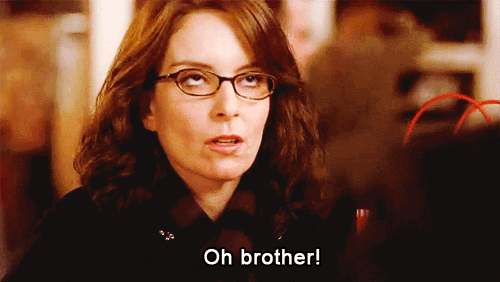Part 2: Read it out loud.
Part 3: Have someone who knows what they're doing read it.
Part 4: Consistency, consistency, consistency!
Part 5: Dialogue tag...you're NOT it!
Part 6: Pick the right word to say what you mean.
Part 7: Adverbs--Kill it with fire!
Part 8: Editors Aren't Perfect
I had quite a few that I thought would be helpful, so here's the second half of Part 9: FSEs (Frequently Seen Errors)
As a woman who frequently writes male perspectives, it's a (fun) challenge to get in their heads and write from their point of view. But we've collectively read so many stories where the male characters are basically women with penises. So, if you're writing a man, try very hard to see things from their perspectives. How do they think? A man who is describing a woman's clothing would notice different things than a woman would--is the dress tight, pink, and short? He's not going to notice that it's peach, chiffon, or tea-length (unless the character is a fashion designer or something). When in doubt, ask a man--brother, father, son, husband, whoever--to describe something, or how they'd say something. It'll probably be short and sweet. There are lots of great posts out there on how to write men, so hit up Google.
Over-reactions as a major plot device
People--both real ones and the ones you've created in your manuscript--make mistakes and misinterpret things. We get that, we really do, and they're okay in small doses. It helps create some mild conflict so we get to see who the characters are. But using a huge misinterpretation or something similar leading to an overreaction as a plot device is getting stale. There are soooo many movies and books that do this that it's pretty played out. You saw your man having coffee with a woman in a Starbucks you happened to walk by? Yep, better freak out and overreact and assume he's cheating on you rather than: 1) going in and saying hello; 2) mentioning it to him later on when you're alone; or 3) anything else a real, sensible adult would do. Common plot twist discovered later: she's his sister/lesbian best friend/happily married boss, and that overreaction was all for naught. Huh. Who woulda thought?
Play-by-plays

Collectively, we agreed that we don't need to hear about everything the characters are doing. One of the freelance editors I was speaking with mentioned a page-long (several paragraphs in Word) meal scene she read where nothing major happened, certainly nothing necessary to the plot. But there were descriptions of what the characters were eating, how they were eating, everything. There was a whole play-by-play scene that did nothing that "X, Y, and Z had pizza for dinner before going out" couldn't have done. Again, we realize you're probably looking to pad the word count, but if you find a scene like this, cut it down. Description is often good and important, and it might take practice to find these stray scenes, but do your best.
Simple punctuation errors
Why would this drive an editor crazy? Because it's so easy to look up. It's almost cliche at this point, but there's a big difference between "Let's eat Grandpa!" and "Let's eat, Grandpa!"--mostly cannibalism. Please, for the love of Jesus on a Velociraptor, if you want any editor or publisher worth their salt to take you seriously--or, if you're self-pubbing, for the readers to not tear you a new one in your Amazon reviews over your shitty grammar skills--look up how to properly punctuate--especially around dialogue. And please...apostrophes aren't necessary to make something plural. Really. Please stop abusing them. What have they ever done to you?
 Excessive name or nickname use
Excessive name or nickname useThink about the last conversation you had with a person or even a group of people. Now think about how many times you actually said one of their names out loud, especially if it was just you and the other person. Maybe once? If it was a group, maybe a few times--if that--to specify who you were talking to? Keep this in mind when writing dialogue scenes, as this often gets out of hand. It's easy enough to tell who's talking if you use tags like "Brian said" or "Melanie asked". If there's a group, you can probably get away with using names more often, or to specify who is talking to whom, but keep it to a minimum. Your readers will thank you for it.
As for excessive nicknames, they can actually confuse the reader, especially if you have a large cast already. The readers will likely wonder, "Who is this?" and get frustrated. If you have a character named Katherine, it's logical that some people would call her Kate. But it's probably not necessary for her to also be called K-Dawg, Special K, and Katy-Kat by other characters.
I hope this little peek into frequently seen errors has helped you out!
What do you think?
xoxo Sarah


